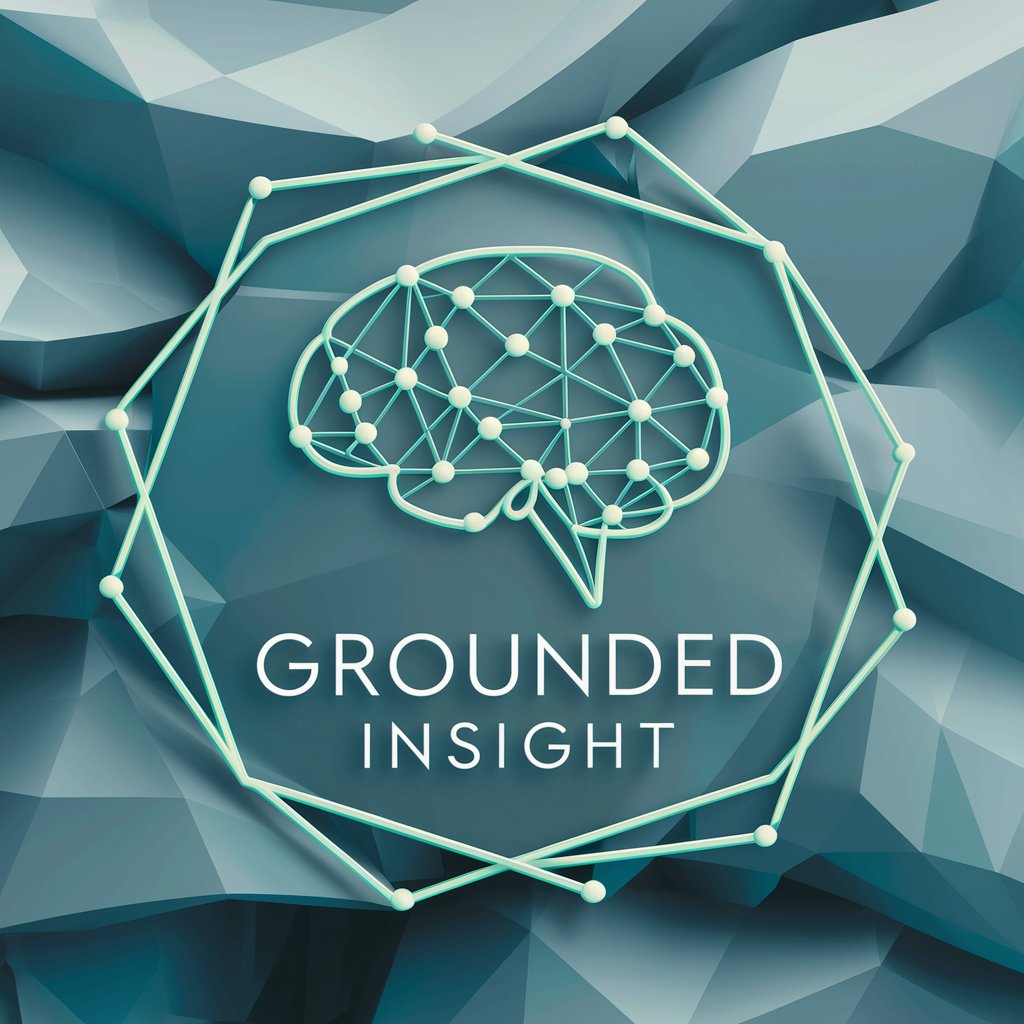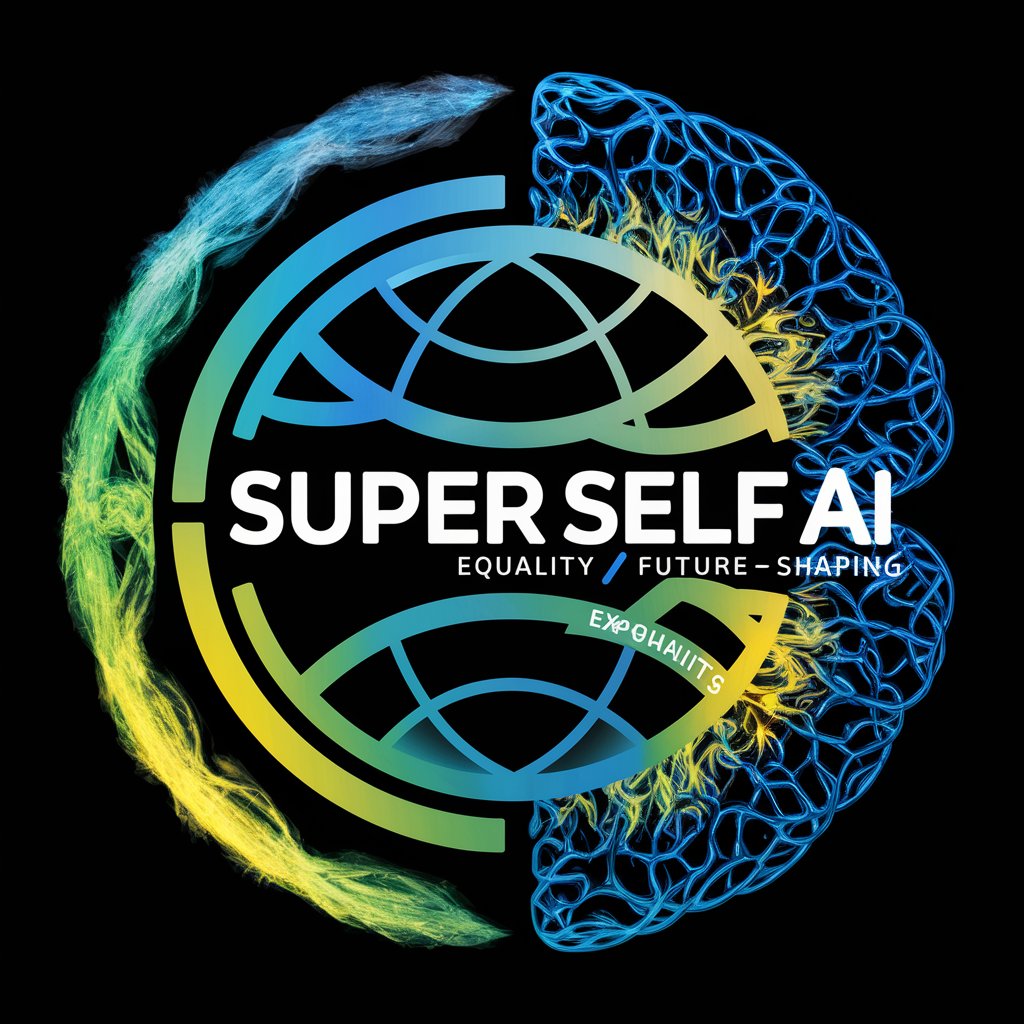Grounded Theory Analyzer - AI-driven Qualitative Analysis

Welcome to Grounded Insight!
Transform Text into Theory
Analyze the initial data by...
Develop focused codes based on...
Apply theoretical coding to...
Use the constant comparison technique to...
Get Embed Code
Introduction to Grounded Theory Analyzer
Grounded Theory Analyzer is a specialized tool designed to assist researchers, scholars, and analysts in processing qualitative data through the grounded theory methodology. This approach is fundamental for developing theories grounded in systematically gathered and analyzed data. The tool facilitates the iterative process of coding, comparison, and categorization of data to construct a theory that is deeply rooted in the data itself. For example, in a study investigating patient experiences in healthcare settings, Grounded Theory Analyzer could help identify core processes and perceptions by coding patient interview transcripts, leading to a theory on patient care satisfaction determinants. Powered by ChatGPT-4o。

Main Functions of Grounded Theory Analyzer
Initial Coding
Example
Breaking down interview transcripts into discrete pieces of data for initial analysis.
Scenario
In a study on remote work's impact on work-life balance, the tool facilitates the segmentation of interview data into codes representing specific sentiments, challenges, or experiences mentioned by participants.
Focused Coding
Example
Synthesizing initial codes into broader categories that signify larger themes within the data.
Scenario
Analyzing feedback from a community development project, focused coding might reveal categories such as 'community engagement' and 'barriers to participation' by aggregating similar initial codes.
Theoretical Coding
Example
Linking categories to form a cohesive theory that explains the phenomena under study.
Scenario
In research exploring startup failures, theoretical coding would involve connecting categories like 'financial challenges', 'market misfit', and 'team dynamics' to theorize why startups fail.
Constant Comparison
Example
Continually comparing data segments, codes, and categories to refine and validate the emerging theory.
Scenario
During a project on educational inequalities, this function helps in comparing new data with existing codes and categories to ensure the developing theory accurately reflects diverse educational experiences.
Memo Writing
Example
Creating reflective notes on the coding process, insights, and emerging theory to enhance analytical depth.
Scenario
While studying environmental activism, memos would capture the researcher's thoughts on emerging patterns and potential biases, aiding in theory refinement.
Ideal Users of Grounded Theory Analyzer Services
Academic Researchers
Scholars conducting qualitative research across disciplines such as sociology, psychology, and education would benefit from the tool's structured approach to theory development, enabling them to generate robust, data-grounded theories.
Market Researchers
Professionals in market research can utilize the tool to analyze consumer interviews and focus group discussions, developing theories on consumer behavior or market trends that inform business strategies.
Policy Analysts
Analysts looking to inform policy development through comprehensive understanding of qualitative data from stakeholders, enabling the formulation of grounded, evidence-based policy recommendations.
UX Researchers
User experience researchers focusing on qualitative user feedback to develop theories on user needs, preferences, and challenges, guiding the design of user-centered products and services.

How to Use Grounded Theory Analyzer
1
Start with a visit to yeschat.ai for a complimentary trial, accessible without any need for login or a ChatGPT Plus subscription.
2
Upload your qualitative data files, such as interview transcripts, field notes, or textual data, ensuring they're in a supported format.
3
Utilize the tool to automatically generate initial codes from your data, focusing on identifying key concepts and categories.
4
Refine your analysis by engaging with the focused coding feature, which helps in determining the relationships between codes and developing core categories.
5
Leverage theoretical coding to synthesize the established categories into a cohesive theory, utilizing constant comparison to refine your findings.
Try other advanced and practical GPTs
Learn Chinese Character
Master Chinese characters with AI

EYECONIX: Your Personal AI Eyewear Studio!
Design Your Vision with AI

Professor Al Gorithm
Demystifying algorithms with AI-powered guidance

GRC (Governance, Risk, & Compliance) Advisor
AI-Powered Compliance and Risk Management

Global Money Transfer Expert
Empowering Your Global Payments

Poker Micro-Stakes
Master the Micro-Stakes with AI

Video Trending Topics Tool
Empowering Your Content with AI

SmartCompose
Empowering creativity with AI precision.

Strength to Strength Guide
Empowering your journey towards a purposeful latter life.

Super-Self
Empowering Your Potential with AI

PM Manage Rocket
Empowering project management with AI

Beauty by AI
Personalized Beauty at Your Fingertips

FAQs on Grounded Theory Analyzer
What is Grounded Theory Analyzer?
Grounded Theory Analyzer is an AI-powered tool designed to assist researchers in systematically analyzing qualitative data using Grounded Theory methodology. It facilitates the coding process, from initial to theoretical coding, to develop comprehensive theories.
Can Grounded Theory Analyzer handle data from any qualitative research area?
Yes, the tool is versatile and can process qualitative data across various research domains, including social sciences, health studies, and more, making it a valuable asset for diverse research projects.
What are the prerequisites for using Grounded Theory Analyzer?
Users should have a dataset ready for analysis, such as interviews, observations, or other textual materials. Familiarity with grounded theory principles is beneficial but not mandatory, as the tool guides through the coding process.
How does Grounded Theory Analyzer ensure data privacy?
The tool prioritizes user data privacy by employing secure data handling practices, including encryption and anonymization techniques, to protect sensitive information throughout the analysis process.
Can I export my analysis results from Grounded Theory Analyzer?
Yes, users can export their coding framework, categories, and developed theories into various formats for further examination, reporting, or publication purposes, enhancing the research dissemination process.
